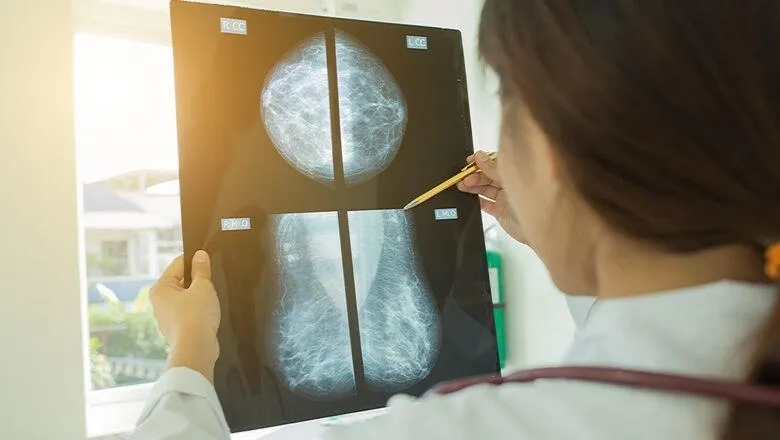The NHS Breast Screening Programme in England has shown little, if any, evidence of overdiagnosis.

The major study, by researchers from King's and Queen Mary University of London researchers, was funded by the National Institute for Health and Care Research.
Overdiagnosis occurs when a person has a tumour but it grows so slowly it would not have caused symptoms. When these types of cancer are diagnosed early, it's impossible to tell the difference between harmful and harmless ones. Because of this, everyone is offered treatment, which means some people could be exposed to the potential side of effects of treatment.
Until now, estimates of overdiagnosis have varied widely, ranging from less than 5% of screen detected cancers to more than 30%.
To quantify overdiagnosis in the NHS Breast Screening Programme, researchers undertook a study of 57,493 breast cancer cases diagnosed in 2010 or 2011, matched with 105,653 controls.
They estimated the effect of screening on breast cancer risk, and the results were combined with national incidence data to estimate absolute rates of overdiagnosis. Overdiagnosis was calculated as the cumulative excess of cancers diagnosed in women aged 50-77 attending three-yearly screening between ages 50 and 70 compared with women attending no screens.
The estimated number of cases of overdiagnosis in women attending all screens in the programme was just under 3 per 1000, corresponding to an estimated 3.7% of screen detected cancers overdiagnosed.
This is considerably lower than has been suggested in the past. Authors conclude that the NHS Breast Screening Programme is associated, at worst, with modest overdiagnosis of breast cancer.
Overdiagnosis is quite a complex issue. Had we stopped following women at age 70, nearly 1% of screened women would seemingly have been overdiagnosed, but by waiting another 7 years, more never-screened women will be diagnosed with breast cancer and the three-quarters of the excess cancers turn out to have been diagnosed early rather than overdiagnosed. What this means is that most previous studies have overestimated the harms of participating in breast cancer screening up to the age of 70.– Peter Sasieni, Academic Director of the Clinical Trials Unit and Professor of Cancer Prevention
The NHS Breast Screening Programme invites anyone registered with a GP as female aged 50-70 for a screening every three years. In the UK, breast cancer accounts for 31% of all new cancers diagnosed in women each year, with cases having increased by 4% in the last decade. Despite the rise in cases, deaths caused by breast cancer are declining. This is in part due to early diagnosis of breast cancer through the NHS Breast Screening Programme.
Stephen Duffy, Professor of Cancer Screening, Queen Mary University of London and joint lead investigator, said: "These results provide some reassurance that participation in the NHS Breast Screening Programme confers only a low risk of an overdiagnosed breast cancer. Along with the results of our previous study of the effect of screening on breast cancer mortality, this indicates that the benefit of screening in preventing deaths from breast cancer outweighs the small risk of overdiagnosis."
This study was funded by the NIHR Policy Research Programme.






